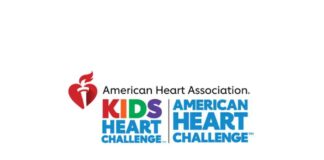The Importance of Handwashing in Preventing Disease
A recent episode of the Mean Girl podcast has sparked controversy and concern over the importance of handwashing in maintaining good hygiene. During the episode, cohosts Alex Bennett and Jordyn Woodruff engaged in a discussion about their personal handwashing habits, or lack thereof. Woodruff admitted to only washing her hands after using the bathroom if her roommates were around, while Bennett expressed skepticism about the effectiveness of handwashing in general.
The conversation quickly drew backlash from listeners and health experts alike, who emphasized the critical role that handwashing plays in preventing the spread of diseases. In a time when the world is still grappling with a global pandemic, the need for proper hand hygiene has never been more important.
Debunking Misinformation: Separating Fact from Fiction
One of the key issues raised by the Mean Girl podcast hosts is the dissemination of misinformation disguised as trendy honesty and quirkiness. By downplaying the importance of handwashing and questioning its efficacy, Bennett and Woodruff are inadvertently promoting dangerous misconceptions that could have serious consequences.
Catherine Zeman, a preventive medicine expert and environmental health professor, warns against perpetuating the myth that handwashing is not important. She emphasizes that pathogens can quickly spread and replicate in the absence of proper hygiene practices, making it crucial to reinforce the importance of handwashing as a simple yet effective measure to prevent the transmission of harmful microorganisms.
Historical Context: The Origins of Handwashing Practices
The debate over handwashing is not new. In the mid-1800s, Hungarian doctor Ignaz Semmelweis made a groundbreaking discovery that would revolutionize healthcare practices. While working in a maternity hospital in Vienna, Semmelweis observed a stark difference in maternal mortality rates between clinics where doctors and medical students washed their hands before attending to patients and clinics where hand hygiene was neglected.
Semmelweis’s findings highlighted the critical role that handwashing plays in preventing the spread of infections and saving lives. His pioneering work laid the foundation for modern hygiene practices and emphasized the importance of handwashing in healthcare settings.
The Science Behind Handwashing: A Closer Look at Its Impact on Public Health
Dr. Sabina Holland, a pediatric infectious disease doctor, underscores the significance of handwashing in reducing the spread of microorganisms and preventing the transmission of diseases. Inadequate hand hygiene has been linked to a significant number of global deaths, particularly among children under five years old.
According to the CDC, handwashing can prevent a substantial percentage of diarrhea-related illnesses and respiratory infections such as the common cold and flu. By practicing proper hand hygiene, individuals can help mitigate the spread of germs and reduce the risk of antibiotic resistance, thereby safeguarding public health.
Handwashing Best Practices: Tips for Maintaining Good Hygiene
In light of the ongoing debate surrounding handwashing, it is essential to reiterate the importance of following proper hand hygiene practices. The CDC recommends washing hands with soap and water for at least 20 seconds, ensuring thorough coverage of all surfaces, including the back of hands, between fingers, and under nails.
In situations where soap and water are not available, hand sanitizer with at least 60% alcohol can be used as an alternative. It is crucial to allow the sanitizer to air dry on its own to ensure its effectiveness. Additionally, handwashing should be performed before and after various activities, including preparing food, caring for sick individuals, and using the bathroom.
The Impact of Handwashing on Public Health: A Global Perspective
Despite the widespread awareness of the importance of handwashing, studies have shown that a significant proportion of individuals do not adhere to proper hand hygiene practices. A YouGov poll conducted in 2020 revealed that only a fraction of American adults wash their hands with soap consistently after using the bathroom, highlighting the need for greater education and awareness on this crucial issue.
On a global scale, estimates suggest that a mere 19% of people wash their hands after using the restroom, underscoring the importance of promoting handwashing as a fundamental public health measure. By emphasizing the significance of hand hygiene and debunking misconceptions surrounding its efficacy, we can empower individuals to take proactive steps to protect themselves and others from infectious diseases.
Conclusion
In conclusion, the Mean Girl podcast episode serves as a reminder of the ongoing need to educate the public about the importance of handwashing in preventing the spread of diseases. By debunking misinformation and promoting evidence-based practices, we can empower individuals to make informed decisions about their hygiene habits and prioritize public health.
As we continue to navigate the challenges posed by the current global health crisis, it is crucial to reinforce the message that handwashing is a simple yet effective measure that can make a significant difference in preventing the transmission of harmful microorganisms. By following best practices for hand hygiene and promoting a culture of cleanliness, we can work together to safeguard our health and well-being for generations to come.


















